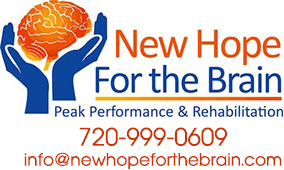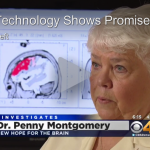Dementia is a serious loss of global cognitive ability in a previously unimpaired person beyond what might be expected from normal aging. It can be the result of a brain injury or a progressive illness, resulting in long-term decline due to damage or disease in the body.
Dementia is not merely a problem of memory. It affects the ability to learn, reason, retain or recall past experience. Previously routine patterns of thoughts, feelings and activities typically decline over time. Additional mental and behavioral problems occur which influence quality of life, burden caregivers, and can create the need for institutional care.
Coming to grips with a diagnosis of dementia in a family member or loved one requires much understanding and support — for the caregiver as well as for the patient. Both the caregiver and the memory-impaired person are a part of a family that will need to work together to cope with this condition. As the condition progresses, the impaired person becomes increasingly dependent and requires more and more attention. The caregiver must learn that caring for oneself cannot be overlooked.
Finding the help you need and trying to plan ahead for problems that emerge at various points in the course of the illness can stretch one’s emotional resources as well as problem-solving skills. A well-timed consult with a knowledgable professional can help prevent a number of problems before they arise as well as provide much needed support.
Dementia is not an inevitable part of aging. Neither is memory loss nor other forms of cognitive decline. Many things, such as stress, anxiety, medications or physical illness affect our memory and our thinking. Many people worry about dementia – particularly if a family member has experienced it. New Hope For The Brain can help sort through these concerns.
While there are many types of dementia, the most common diagnosis is that of Alzheimer’s, a progressive degenerative disease. Symptoms of Alzheimer’s are similar to that of injury-related dementia and cause the two to often be confused. Being able to differentiate between what is dementia and what isn’t, as well as which forms of dementia can be remediated vs. which ones can’t, is of critical importance to both the client and the caregiver. Injury-related dementia is not inherited, and can be remediated.
The technology used at New Hope For The Brain allows us to distinguish between injury-related and non-injury related symptoms. It also is effective in remediating symptoms of injury-related dementia.
Neurofeedback:
Neurofeedback plays an important role in the forms of dementia that can be remediated. A brain wave evaluation will quickly reveal whether dementia symptoms are due to a brain injury at some point in the client’s life or a degenerative disease that resists remediation. The characteristic brain wave pattern for injury (mild or severe) is spikes. Spikes seen in the brain wave recording during an evaluation reveal that a brain injury is at least partially responsible for the dementia symptoms. Spikes are not seen in the brain waves of those with other forms of dementia.
The good news is symptoms of injury-related dementia can be remediated using Neurofeedback. Slow wave activity is reduced, especially in the frontal and temporal lobes. It is very effective when this happens, symptoms decrease while function improves.

